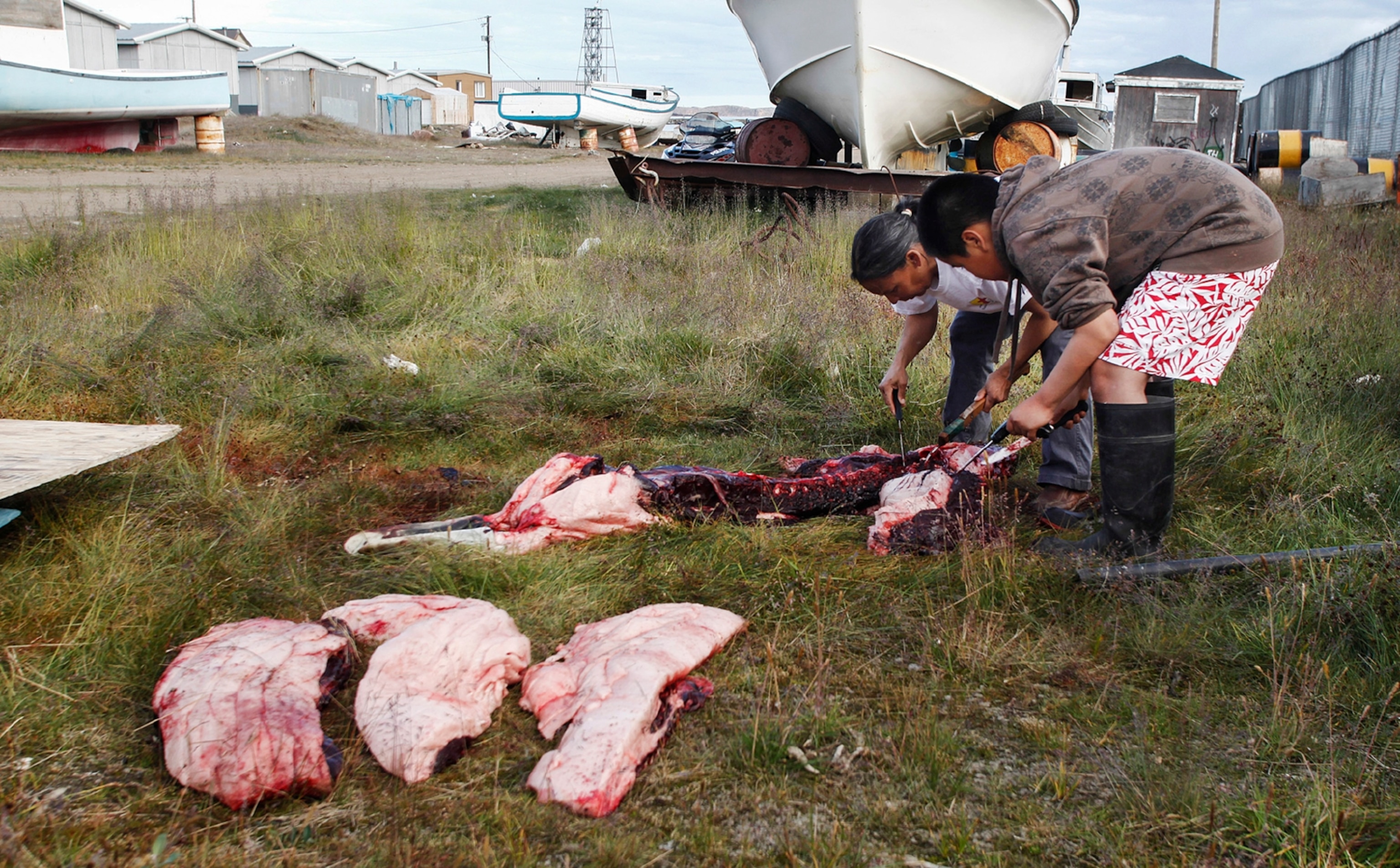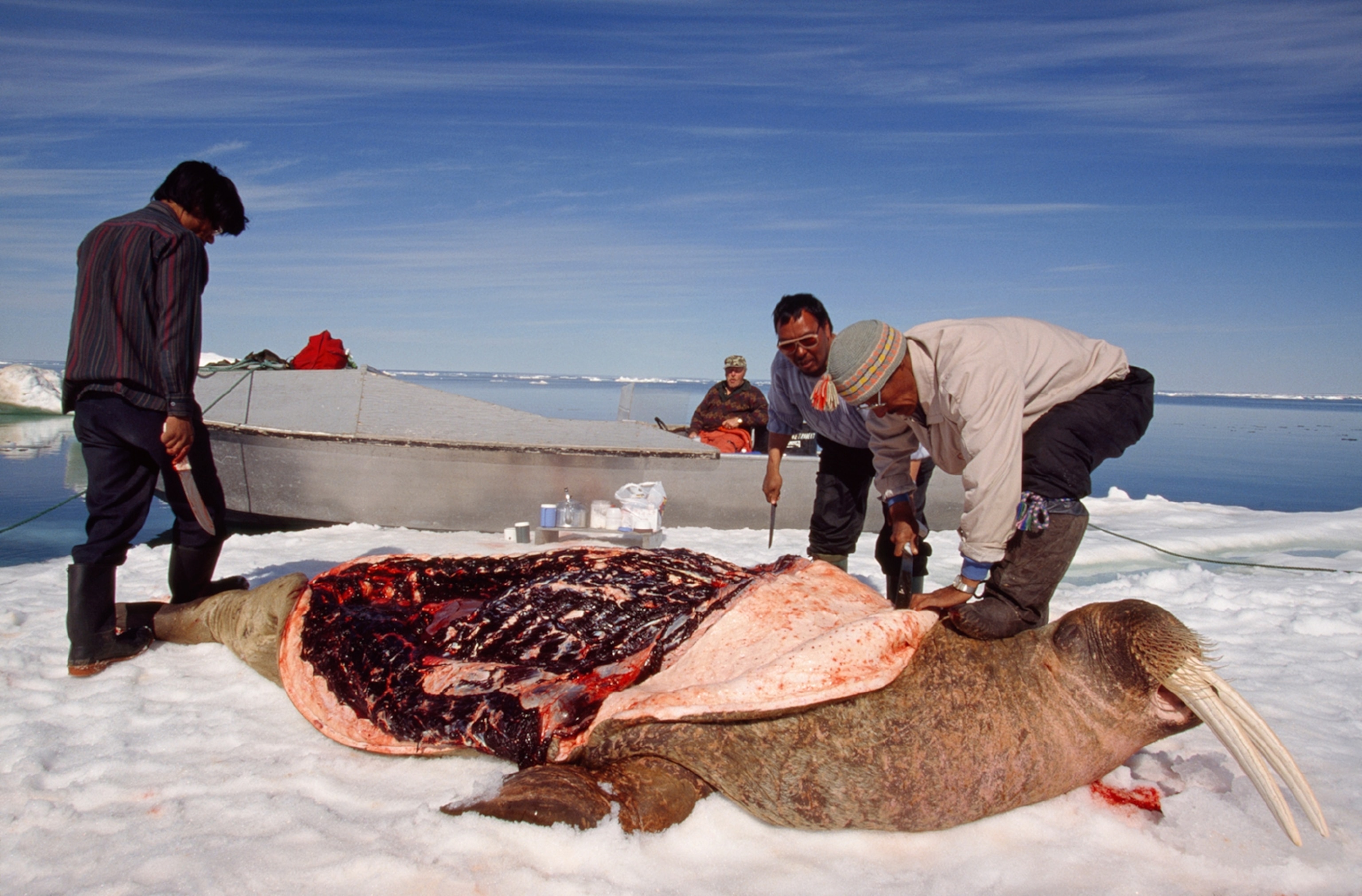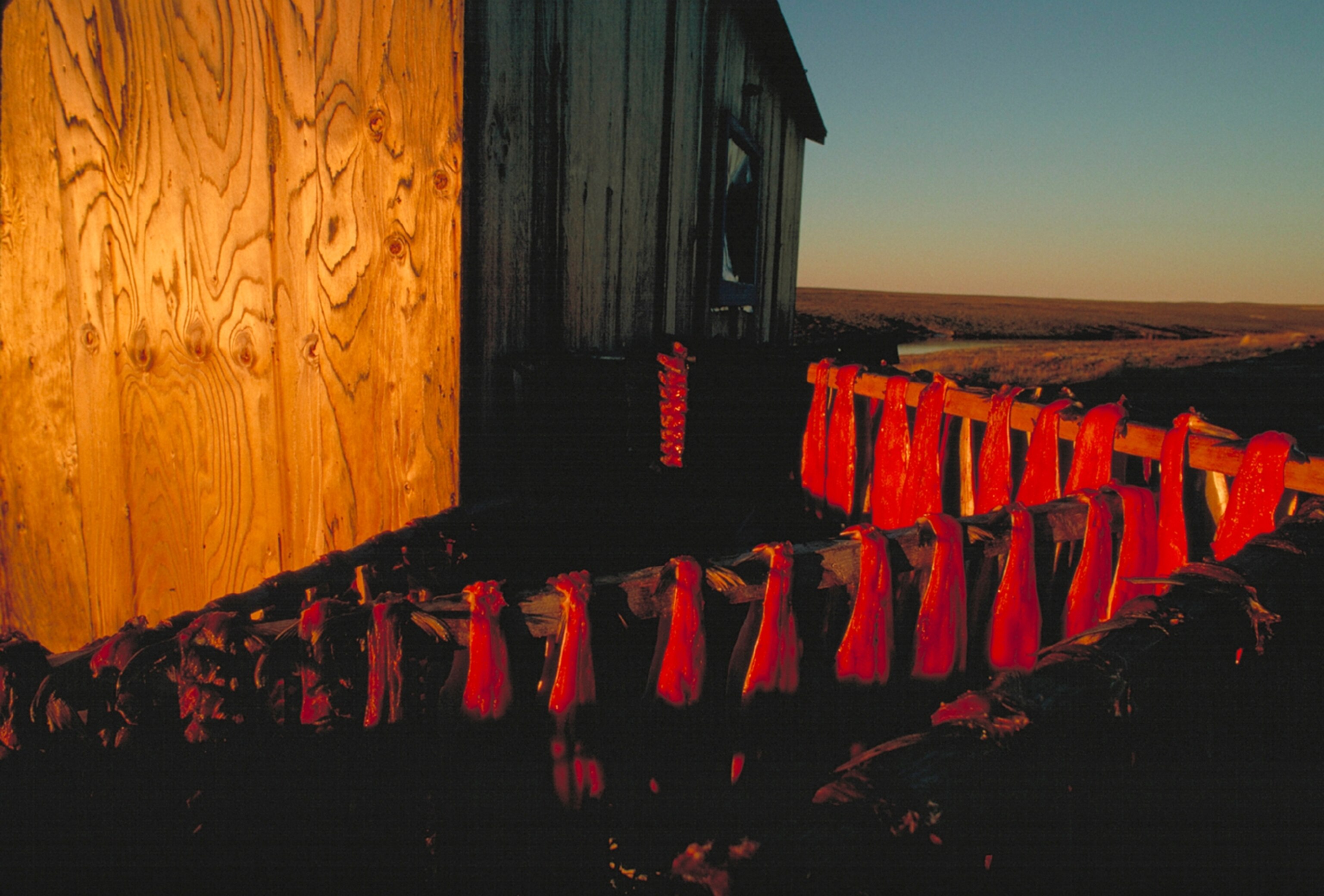
How Brain-Damaging Mercury Puts Arctic Kids at Risk
Inuit children, exposed in the womb, have lower IQs because their mothers eat whale meat and other foods tainted with contaminants that drift north.
In the frozen far north, in Arctic Quebec, the Inuit have relied on the same nutritious foods culled from the oceans for centuries: beluga whale, fish, seal, and walrus.
But some of these traditional foods have become so contaminated with brain-damaging mercury that the IQs of schoolchildren in remote Arctic villages are abnormally low.
Inuit kids with the highest exposures to mercury in the womb are four times more likely than less-exposed Inuit kids to have low IQs and require remedial education, according to new findings by a team of researchers in Canada and the United States. The children scored on average almost five points lower on IQ tests.
“This study adds to a wealth of evidence that mercury from seafood can damage brain development in children,” said Philippe Grandjean, a Harvard University neuroscientist who co-authored landmark research on the effects of mercury on children in the North Atlantic’s Faroe Islands.
Scientists have sparred for years over the risks and benefits of fish consumption for pregnant women and their fetuses. Fish and marine mammals are rich in omega-3 fatty acids, which benefit brain development, while mercury and other contaminants in seafood trigger health advisories for pregnant women in the United States and Canada.
In the latest study in Nunavik, the far northern part of Quebec, Inuit children had slightly higher mercury levels than most American children. However, the levels were similar to those found in some U.S. populations that eat a lot of fish, including New York City kids born to native Chinese mothers.
Worldwide, mercury in the oceans is on the rise, largely because of emissions from coal-fired power plants in Asia. Ocean and air currents pull mercury and other contaminants north, so they accumulate in Arctic wildlife and people.
The IQs of 282 Nunavik children, ranging in age from 8 to 14 years, were compared with the amounts of mercury in their umbilical cord blood in the study conducted by researchers at Laval University in Quebec and Wayne State University in Detroit.
The children from Nunavik, a vast territory larger than California with a population of only 12,000, traveled by plane from their remote villages to undergo the IQ testing. Some questions on the tests, which originally were designed for American children, were changed to better reflect Inuit culture. In one test, for instance, researchers swapped out “volcano” for “avalanche.”
The health of children in the villages has been studied by these Laval University researchers since the 1990s because of the children’s high exposure to mercury and polychlorinated biphenyls (PCBs), other contaminants that build up in marine foods. Previous research has suggested effects on attention disorders, motor skills, heart rates, and respiratory and ear infections.
The meat of belugas—small, white whales with bulbous heads that inhabit icy waters off Canada and Greenland––is regarded as an Inuit delicacy and provides essential nutrients such as protein and iron. But belugas also are contaminated with exceptionally high levels of methylmercury. Eaten raw, frozen, or boiled, their meat contributes two-thirds of people’s dietary mercury intake in some villages even though it is consumed far less frequently than the “country food” staples of caribou, geese, seal meat, walrus, and Arctic char.
“I feel terrible about the presence of contaminants that have made their way to my homeland of Nunavik. I feel particularly frustrated, because we have no industrial development in Nunavik,” said Adamie Delisle Alaku, who lives in the Nunavik village of Kuujjuaq. He is an executive vice president of Makivik, a corporation that represents Nunavik’s Inuit.
Measuring Inuit IQs
Nearly eight of every ten women of childbearing age in some Nunavik villages have blood mercury levels exceeding Canada’s health guideline.
On the IQ tests, the children with the highest mercury levels in their cord blood scored, on average, 4.8 points lower than children with lower levels, according to the study, published in the journal Environmental Health Perspectives earlier this month. And kids with the highest levels were four times more likely to have an IQ below 80, the clinical cutoff for a learning disability.
“IQ is a really useful measure when thinking about toxicity of chemicals, because it’s a general test of cognitive ability that incorporates a variety of different brain functions,” said Bruce Lanphear, an epidemiologist at Simon Fraser University in British Columbia who was not involved in the Nunavik research.

In children it is difficult to distinguish a five-point difference in IQ. But such differences become more noticeable when looking across an entire population, Lanphear said. “For every IQ point lost, there is an estimated $15,000 [U.S.] reduction in lifetime earnings,” he said.
Scientists and regulators have debated for years over the link between lower IQs and mercury-tainted seafood.
Much of this controversy is fueled by the contradictory science: In three decades of research on the Faroe Islands, where pilot whale is a traditional food, children with high mercury exposure have scored substantially lower on tests measuring vocabulary, memory, and motor skills. On the other hand, tests of children in the Seychelles, in the Indian Ocean, found no association between mercury exposure from fish and the same measures of brain development.
Some researchers have speculated that high levels of fatty acids found in fish in the Seychelles could have masked the effects of mercury there. The Faroese, by comparison, were exposed to mercury through whale meat, which contains less omega-3.

Study co-author Sandra Jacobson said the new Arctic Canada findings shift the evidence in favor of the connection between seafood and reduced mental ability in children. The study is the first to link prenatal mercury exposure to poor performance on an IQ test for schoolchildren.
“One of the real values of our research is that it addresses some of those differences in a completely independent study population and helps to reduce the degree of controversy,” said Jacobson, a Wayne State University neuroscientist who has studied the effects of industrial chemicals on brain development for about 35 years.
The scientists reported that the effect on the children’s IQs may have been even stronger if it weren’t for all the brain-benefiting fatty acids in their marine diet.
More Stress for the Inuit
Contamination of traditional foods adds stress in a population already burdened heavily by poverty and food insecurity. Fewer young Inuit are learning to hunt and fish, while imported foods are unaffordable. Half of the children in a Nunavik survey lacked a sufficient quantity of food, and one-third had low levels of iron.
“It’s very hard under these circumstances to tell people they shouldn’t eat certain foods. That would put additional pressure on families dealing with so many other stressful social and economic situations on a daily basis,” said study co-author Gina Muckle, a Laval University psychologist who has studied the health of Nunavik children since the 1990s.
Health officials in recent years have provided pregnant women along the eastern Hudson Bay with free Arctic char––which is low in mercury contamination and high in fatty acids––to try to wean them off more contaminated beluga meat.
Besides providing nutrition, traditional foods like beluga and seal are a vital part of Inuit culture, from their art to their storytelling.
“Our lives, our cultures, and our very existence is inextricably linked to all the wildlife resources we harvest in the Arctic. Our continued reliance on these resources defines us as a unique people,” Alaku said.
There was some good news about the other major contaminant that has long haunted the Inuit. The researchers found no association between IQs and polychlorinated biphenyls in Nunavik––unlike previous studies of Great Lakes children whose mothers ate PCB-laden fish from Lake Michigan.

“Levels of PCBs have decreased over time. It’s probable that the Inuit children were exposed to a less neurotoxic mixture of chemicals than existed in the Great Lakes in the 1980s,” said Wayne State neuroscientist Joseph Jacobson, who co-authored the Nunavik and Lake Michigan studies with his wife, Sandra.
Based on the findings of children’s studies, U.S. officials advise pregnant and nursing women to avoid certain fish with high mercury levels––tilefish from the Gulf of Mexico, shark, swordfish, and king mackerel. They also are advised to limit white (albacore) tuna to six ounces a week.
Follow Lindsey Konkel on Twitter.